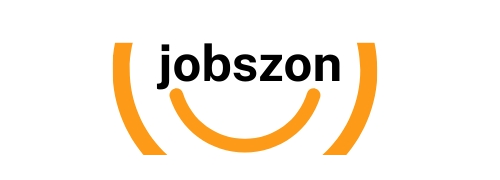Job Interview Tips: How to Answer the 5 Most Difficult Questions Like a Pro
When it comes to nailing a job interview, preparation is everything. These job interview tips will keep you from being tripped up on your next job interview. They aren’t there to make you fail but to see how you think on your feet. Today, I want to dive into five of the toughest interview questions and how to answer them like the rockstar you are. These strategies will not only help you stand out but also build the confidence to walk into that room ready to own it.
1. “What Didn’t You Like About Your Last Job?”
This one’s tricky because it feels like an invitation to rant. Don’t take the bait. Negativity about a previous employer can make you seem unprofessional. Instead, focus on something constructive—something you wished you could have done more of or a challenge you wanted to tackle.
Here’s how I’d handle it:
“Honestly, there wasn’t much I didn’t enjoy. However, I did notice opportunities for innovation in certain processes that weren’t acted on. It made me realize how passionate I am about problem-solving and taking initiatives, which is something I’d love to bring to this role.”
See what happened there? You’re showing enthusiasm and focus on growth, not dragging your old team through the mud.
2. “Where Do You See Yourself in 5 Years?”
Let me guess—you hate this question. Same. It’s like they’re asking you to predict the future, and who can do that? But here’s the thing: employers aren’t looking for a psychic. They want to know if you’re committed and if you’ve got a plan.
Say something like this:
“In five years, I’d love to be thriving in this company, ideally in a role that allows me to contribute even more. Whether that’s through leadership, specialized projects, or mentoring newer team members, I want to grow alongside the organization while sharpening my own skills.”
Translation? You’re not a job-hopper, and you’ve got ambition that aligns with their goals.
3. “How Would You Deal With a Conflict With a Co-Worker?”
It’s tempting to say, “I’d tell my manager,” but don’t. Managers don’t want to babysit—they want problem-solvers. Show them you can handle interpersonal challenges professionally and maturely.
Try this approach:
“First, I’d take a step back to evaluate my role in the conflict. Am I contributing to the issue in any way? Then, I’d have a one-on-one conversation with my colleague to understand their perspective. From there, I’d aim for an open and honest discussion to find a resolution that benefits the team.”
Not only does this show emotional intelligence, but it also demonstrates leadership potential.
4. “Tell Me About a Time You Failed.”
Nobody likes talking about failure, but here’s the secret: they’re not judging you for the failure itself—they’re judging how you handled it. This question is about self-awareness and growth.
Here’s an example of what you could say:
“Early in my career, I underestimated the preparation needed for a critical presentation. The feedback wasn’t great. I took it as a wake-up call. After that, I developed a more thorough preparation process and even sought feedback from mentors before big projects. It’s been a game-changer, and I’ve never made that mistake again.”
Pro tip: Own the mistake, share the lesson, and leave them impressed by your resilience.
5. “Why Should We Hire You?”
This question isn’t just about selling yourself—it’s about connecting the dots between your skills and what the company needs. Be specific, and don’t just say, “I’m a hard worker.”
Try something like this:
“You should hire me because I’m someone who delivers results and supports my team along the way. I bring a mix of creativity and discipline, which helps me adapt to challenges while staying focused on goals. I also understand the importance of adding value to the organization, and I’ve already created a 30-60-90-day plan to hit the ground running.”
If you want to go the extra mile, actually create that plan and bring it with you. It’s a bold move that will set you apart from 99% of candidates.
Bonus Job Interview Tip: Do Your Research
Here’s the deal—job interviews aren’t one-size-fits-all. Tailor your answers to the company’s culture and goals. If you’re applying for research jobs, for example, highlight your ability to stay current with trends and adapt to new methodologies. Demonstrating how you align with the future of the field is often the key to standing out.
Final Thoughts
Job interviews can be nerve-wracking, but with the right preparation, you can turn those tough questions into opportunities to shine. Focus on being authentic, adaptable, and clear about the value you bring to the table.
